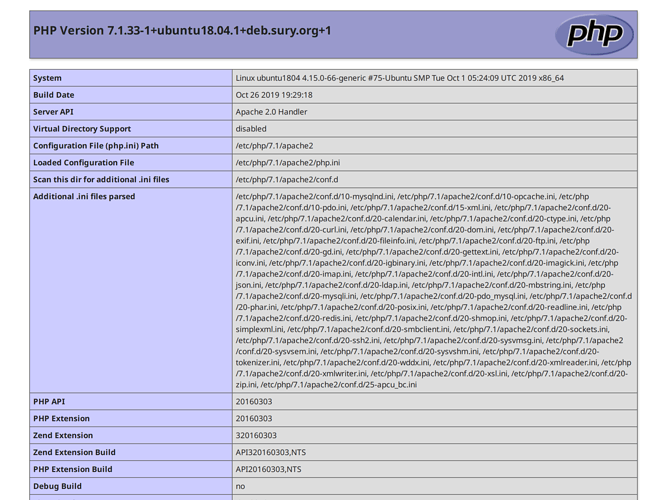Steps to reproduce
- Upgrade owncloud from 10.0.7 --> 10.3.0
- Email setting, update the email id
- Send email
Expected behaviour
test email should be fired
Actual behaviour
getting error of RFC 2822
Server configuration
AWS HVM
Web server:
Apache
Database:
mysql 5.6
PHP version:
php 7.1
ownCloud version: (see ownCloud admin page)
v10.3.0
Updated from an older ownCloud or fresh install:
older owncloud
Where did you install ownCloud from:
owncloud zip packet
Signing status (ownCloud 9.0 and above):
Login as admin user into your ownCloud and access
http://example.com/index.php/settings/integrity/failed
paste the results into https://gist.github.com/ and puth the link here. https://gist.github.com/singhrohit003/fe6ee2448d56ec28854d1b783b96b022
The content of config/config.php:
Log in to the web-UI with an administrator account and click on
'admin' -> 'Generate Config Report' -> 'Download ownCloud config report'
This report includes the config.php settings, the list of activated apps
and other details in a well sanitized form.
or
If you have access to your command line run e.g.:
sudo -u www-data php occ config:list system
from within your ownCloud installation folder
"system": {
"passwordsalt": "***REMOVED SENSITIVE VALUE***",
"secret": "***REMOVED SENSITIVE VALUE***",
"trusted_domains": [
"xx.xx.com",
"xx.xx.digital",
"IP"
],
"asset-pipeline.enabled": true,
"datadirectory": "\/opt\/owncloud\/data",
"overwrite.cli.url": "https:\/\/DNS\/index.php",
"dbtype": "mysql",
"version": "10.3.0.4",
"dbname": "owncloud",
"dbhost": "localhost",
"dbtableprefix": "oc_",
"dbuser": "***REMOVED SENSITIVE VALUE***",
"dbpassword": "***REMOVED SENSITIVE VALUE***",
"logtimezone": "UTC",
"installed": true,
"instanceid": "ocsrpu6y5yzp",
"mail_smtpmode": "php",
"mail_smtphost": "***REMOVED SENSITIVE VALUE***",
"mail_smtpport": "465",
"mail_smtpdebug": true,
"mail_from_address": "***REMOVED SENSITIVE VALUE***",
"loglevel": 3,
"mail_smtpauthtype": "LOGIN",
"knowledgebaseenabled": false,
"memcache.local": "\\OC\\Memcache\\APCu",
"filelocking.enabled": "true",
"memcache.locking": "\\OC\\Memcache\\Redis",
"redis": {
"host": "localhost",
"port": 6379
},
"updatechecker": true,
"ldapIgnoreNamingRules": false,
"maintenance": false,
"mail_domain": "***REMOVED SENSITIVE VALUE***"
}
}
*ATTENTION:* Do not post your config.php file in public as is. Please use one of the above
methods whenever possible. Both, the generated reports from the web-ui and from occ config:list
consistently remove sensitive data. You still may want to review the report before sending.
If done manually then it is critical for your own privacy to dilligently
remove *all* host names, passwords, usernames, salts and other credentials before posting.
You should assume that attackers find such information and will use them against your systems.
List of activated apps:
If you have access to your command line run e.g.:
sudo -u www-data php occ app:list
from within your ownCloud installation folder.
activity: 2.5.0
- comments: 0.3.0
- configreport: 0.2.0
- dav: 0.5.0
- encryption: 1.4.0
- federatedfilesharing: 0.5.0
- federation: 0.1.0
- files: 1.5.2
- files_external: 0.7.1
- files_external_s3: 1.0.0
- files_mediaviewer: 1.0.0
- files_pdfviewer: 0.11.0
- files_sharing: 0.12.0
- files_texteditor: 2.3.0
- files_trashbin: 0.9.1
- files_versions: 1.3.0
- firstrunwizard: 1.2.0
- gallery: 16.1.1
- market: 0.5.0
- notifications: 0.5.0
- provisioning_api: 0.5.0
- systemtags: 0.3.0
- templateeditor: 0.4.0
- updatenotification: 0.2.1
Are you using external storage, if yes which one: s3
Are you using encryption: yes
Are you using an external user-backend, if yes which one: LDAP/ActiveDirectory/Webdav/…
LDAP configuration (delete this part if not used)
With access to your command line run e.g.:
sudo -u www-data php occ ldap:show-config
from within your ownCloud installation folder
Without access to your command line download the data/owncloud.db to your local
computer or access your SQL server remotely and run the select query:
SELECT * FROM `oc_appconfig` WHERE `appid` = 'user_ldap';
Eventually replace sensitive data as the name/IP-address of your LDAP server or groups.
Client configuration
Browser:
All
Operating system:
Logs
Web server error log
Insert your webserver log here
ownCloud log (data/owncloud.log)
Insert your ownCloud log here
Browser log
Insert your browser log here, this could for example include:
a) The javascript console log
b) The network log
c) ...



